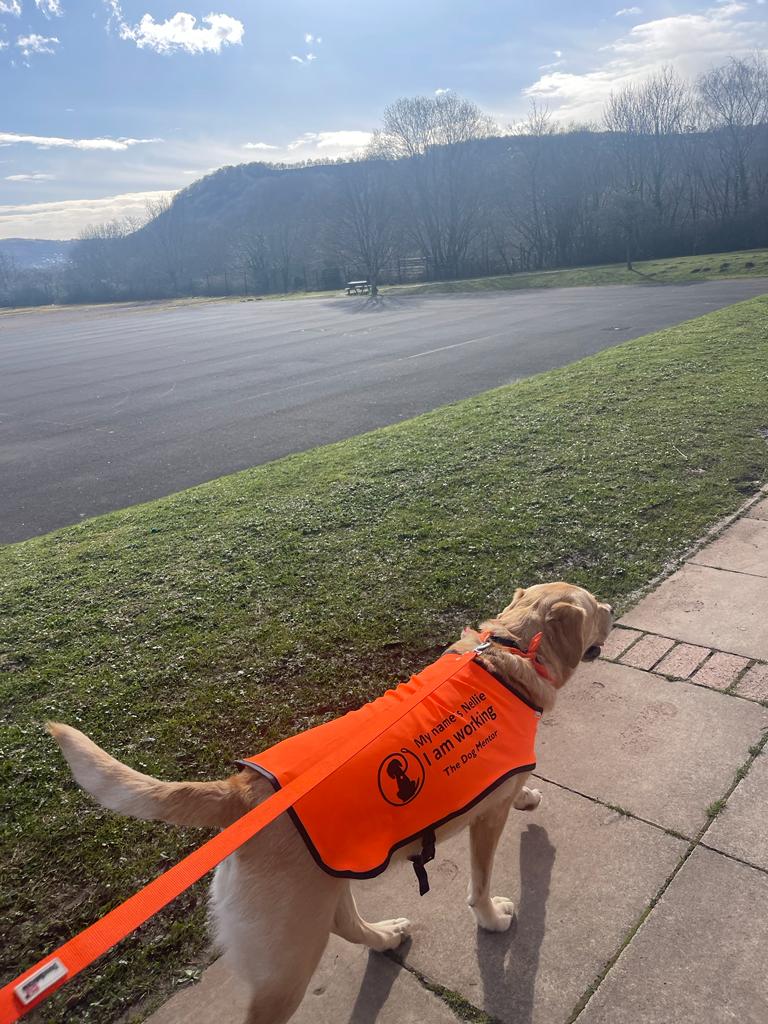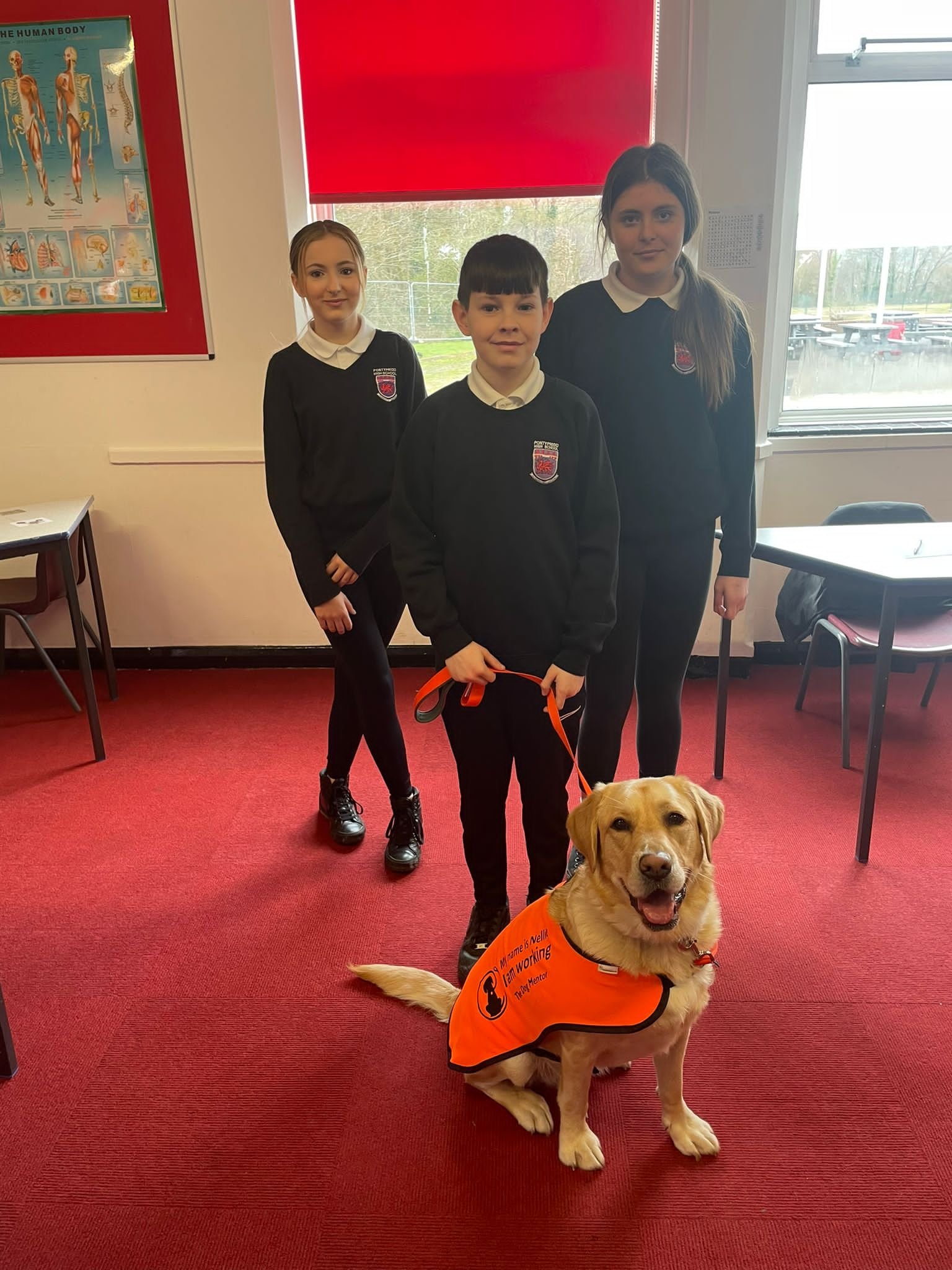School Dog Mentor Programme

At Pontypridd High School, we strongly believe that the well-being of our pupils is equally as important as their education and that it is very important to provide our young people with a range of therapeutic sources to support their development and progress. Therefore, we have signed up to an existing initiative called ‘the Dog Mentor Programme’ and have our very own dog mentor in school called Nellie. Nellie is a 3-year-old Labrador who will be attending school two-three times a week to work with our young people. We believe there is significant potential for dogs to help young people in a range of educational environments, bringing benefits to their academic, emotional and social development.
There is an increasing body of research to support the benefit of a dog in school environments. In schools across the country, ‘Reading Dogs’ are being used to help children develop literacy and ‘Therapy Dogs’ can provide comfort and reassurance to children with anxiety and self-confidence issues. Increasingly in schools, it is becoming recognised that children's emotional well-being is at the root of positive behaviour and success, and a dog can therefore be used to support and improve the well-being of learners.
Children can benefit educationally and emotionally through working with a dog within a school environment. Research also suggests that contact with a dog can help children increase their understanding of responsibility and develop empathy and nurturing skills.
In many schools, dogs are making a difference to the behaviour of pupils. Some schools are using dogs to improve behaviour by promoting positive behaviour in students. In a controlled study, students were found to have fewer disciplinary referrals in schools with a dog than schools without. Students’ behaviour improved towards teachers, and students also showed more confidence and responsibility. Additionally, parents reported that children seemed more interested in school as a result of having a dog at school.
Overall, our aim for our dog mentor is to work with young people and staff within the school to improve well-being and make a positive impact.
By working alongside the dog and learning how to become a good trainer, both staff and children experience the values and techniques that help develop:
• Communication
• Self-control and confidence
• Discipline and resilience
• Empathy and relationships
• Focus and concentration
• Stress coping strategies
Expectations of Students:
It is very important that all pupils follow the guidelines stated below to ensure their safety and the safety of our school dog, Nellie.
· All pupils must ask permission to stroke the school dog (Nellie) from the member of staff responsible for her at the time.
· There should never be more than 2 hands on the dog at any one given time.
· No deliberate running towards / around Nellie.
· No screaming, shouting or loud noises around the school dog.
· Do not repeatedly shout the dog’s name as this will eventually cause her to ignore it and not recognise her own name.
· No eating around the dog.
· If Nellie shows any signs of being uncomfortable or distressed, apply the 2-metre rule.
· All pupils must wash their hands if they have touched the school dog.
Expectations of Parents/ Carers
· Inform the school of any allergies to pet hair that your child may have.
· Inform the school if you do not wish your child to interact with the school dog.



